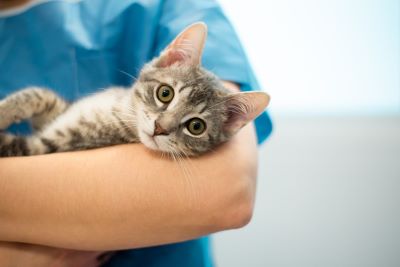What not to feed your dog or cat

Cats and dogs are curious creatures by nature, and they often explore things they shouldn't. They don’t always know what’s good for them, and as pet owners, it's our responsibility to keep them safe, especially when it comes to their diet. While some human foods may seem harmless or even appealing to our furry friends, they can actually be quite dangerous. Here are some of the most common foods that should be avoided for both cats and dogs:
Alcohol
Even a small amount of alcohol can make a cat or dog sleepy and unsteady on their feet, leading to a drop in body temperature and blood sugar levels, as well as seizures and even coma. Sure, invite your pets to the party, but keep alcoholic drinks, especially sweet and creamy ones, out of reach!
Blue cheese
Dogs are well known for loving cheese as an occasional treat, but blue cheeses like roquefort contain roquefortine C, a substance that can cause muscle tremors and seizures in dogs.
Bones
While chewing on bones can be good for dental health, it's important to choose the right ones. Avoid poultry, pork, or cooked bones as they can become brittle and splinter, causing bowel obstruction or gut irritation - they can even puncture the stomach or intestinal wall. Keep an eye on your pet when they're chewing on a bone and take it away when it gets too small.
Bread dough
If you're baking bread, keep your pet away from any dough scraps containing yeast. When eaten, yeast can cause bloat and stomach twisting, which can be fatal. It can also create alcohol in the stomach, which is double trouble for your pet.
Chocolate
Due to a chemical called theobromine, chocolate is toxic to both dogs and cats. Dark chocolate contains more of this chemical, but that doesn’t mean white chocolate is safe either as it’s high in fat. Keep chocolate away from your pets, especially around holidays like Easter, Christmas and Valentine's Day.
Macadamia nuts
Dogs in particular can experience lethargy and weakness after eating macadamia nuts, and may also develop a fever. While not all nuts are toxic to your pets, they are high in fat and can lead to obesity or an upset tummy, so it’s best to avoid them.
Mouldy foods
Dogs and cats shouldn’t eat mouldy dairy products or bread, so if there is any lurking in your bin, make sure the lid is on tight. Moulds produce mycotoxins, which can cause muscle tremors, seizures, and other neurological symptoms in cats and dogs.
Onions, garlic, leeks, and chives
These Alliums, the same family of foods that can cause anaemia in dogs, can be toxic to cats as well. Cats are more sensitive to these compounds, and even a small amount of onion or garlic can cause severe gastrointestinal upset, vomiting, and diarrhoea. Prolonged exposure can lead to anaemia and damage to the red blood cells. Keep these foods away from your pet’s meals and don’t feed your pet any foods that’ve been cooked with them.
Raisins and grapes
Cats and dogs should not be given grapes, raisins, or other related dried fruits. These foods can cause kidney failure in both cats and dogs, so it's important to keep them out of reach.
Xylitol
This chemical is commonly found in sugar-free sweets, sugar substitutes, chewing gums, nicotine replacement gums, and some medicines. Xylitol can cause hypoglycemia (low blood sugar) and liver failure in cats and dogs.
As a general rule, think twice before giving your cat or dog human food. Always contact your vet if you suspect your pet has consumed any of the above.
